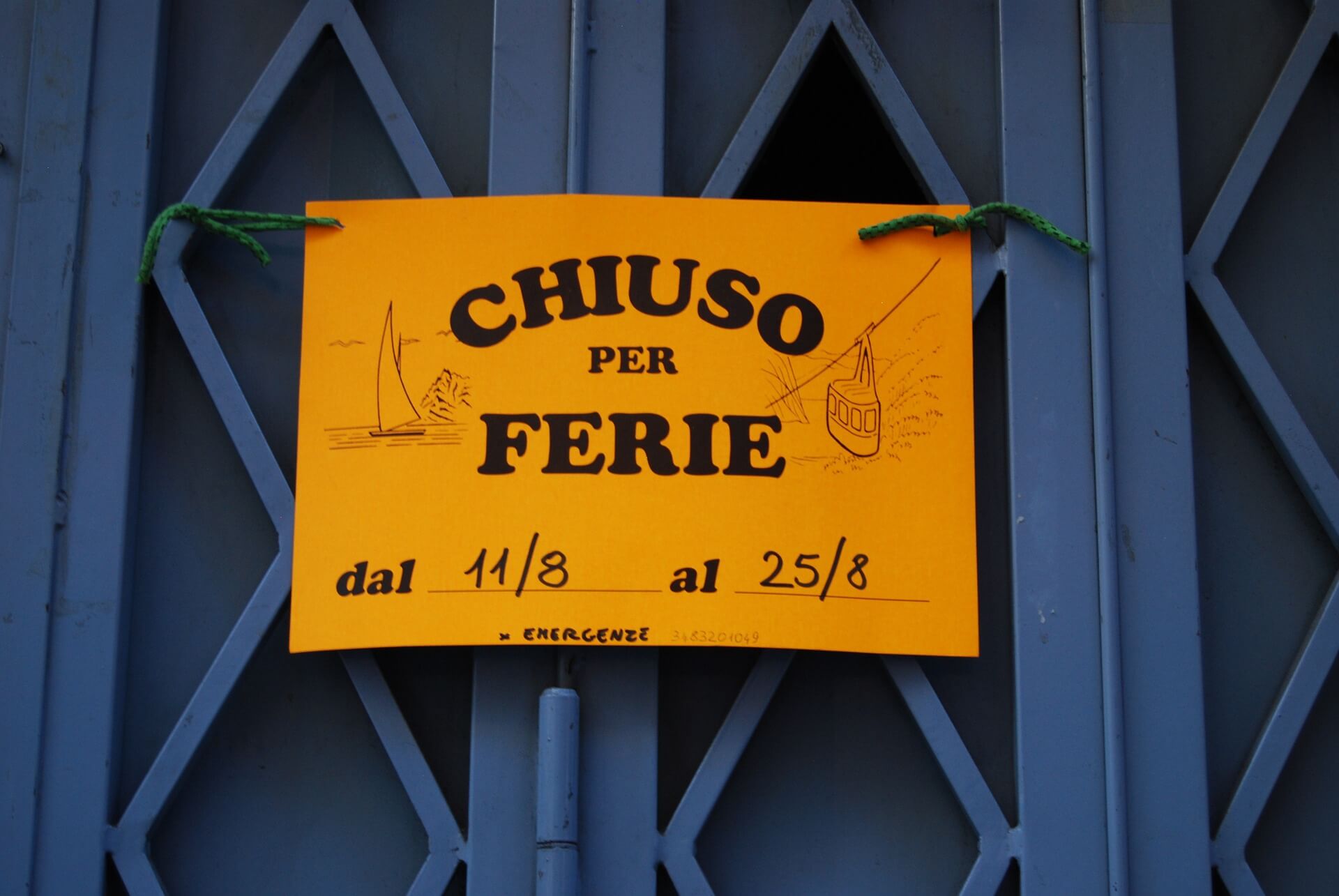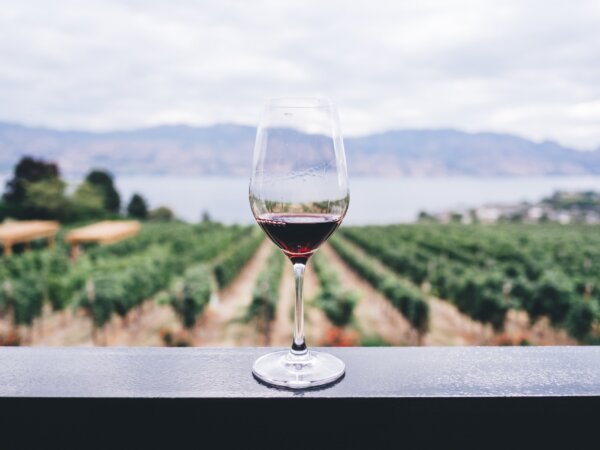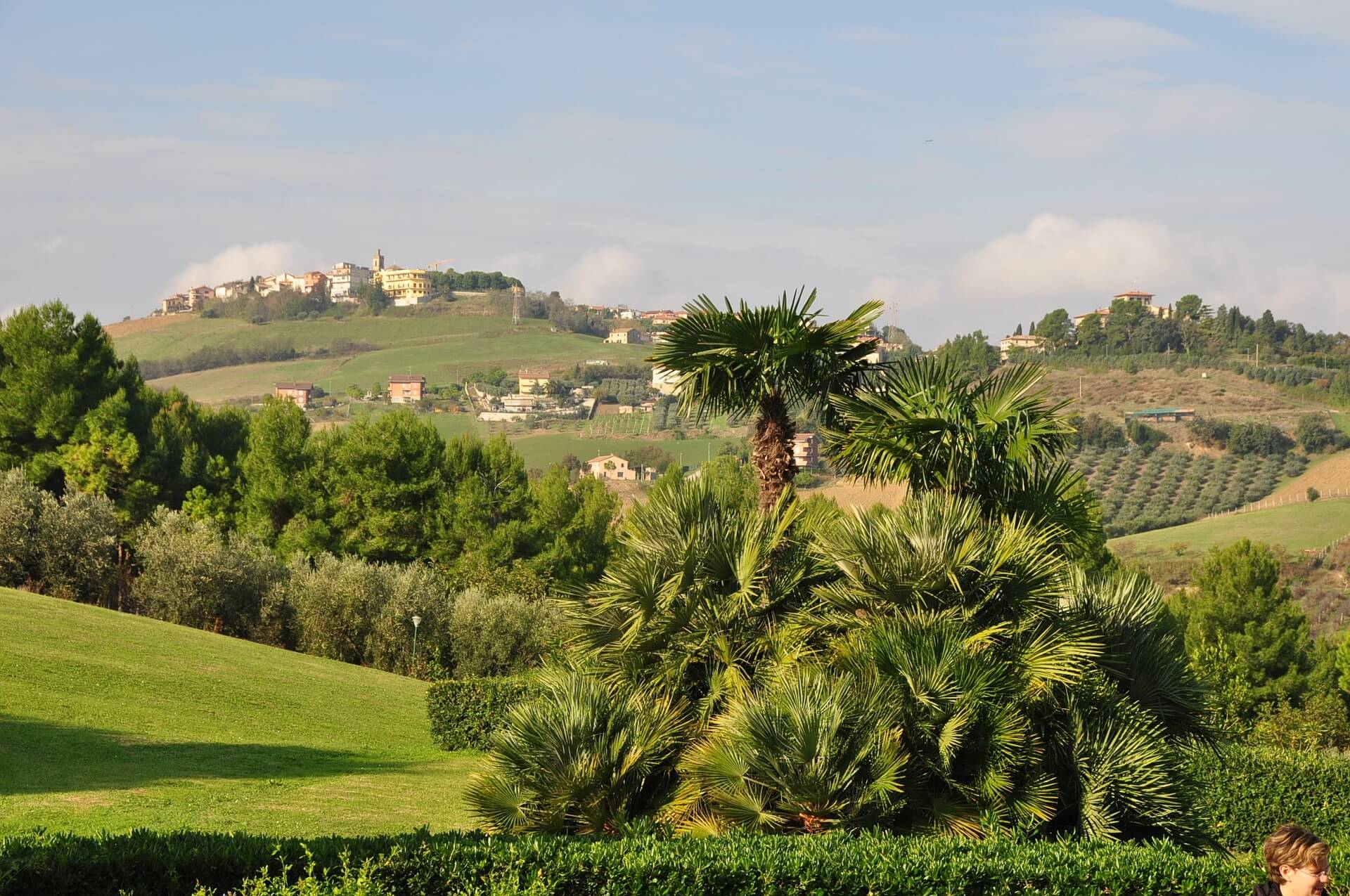It’s not uncommon to hear travellers ask, “What is Lucca known for?”. Lucca is an ancient and storied town located between Florence and Pisa in the Italian region of Tuscany. Meaning ‘illuminated ade’ or ‘luminous space’, its history goes back over two millennia when it was originally settled by the Etruscans in the 3rd century BC. However, it was the Romans in 180 BC that really put Lucca on the map. Today, Lucca is a modern city with an abundance of medieval walls, streets, and squares that distinguish it as a must-see destination for travellers.
Where is Lucca?
Lucca is located in a fertile valley near the Serchio River, the third longest river in Tuscany which eventually empties into the Tyrrhenian Sea on the west coast of Italy. It has a population of approximately 90,000 and is the capital of the province with the same name. The city is only 30 km from the Ligurian Sea, so it is entirely possible to include a visit to the coast when seeing this area.
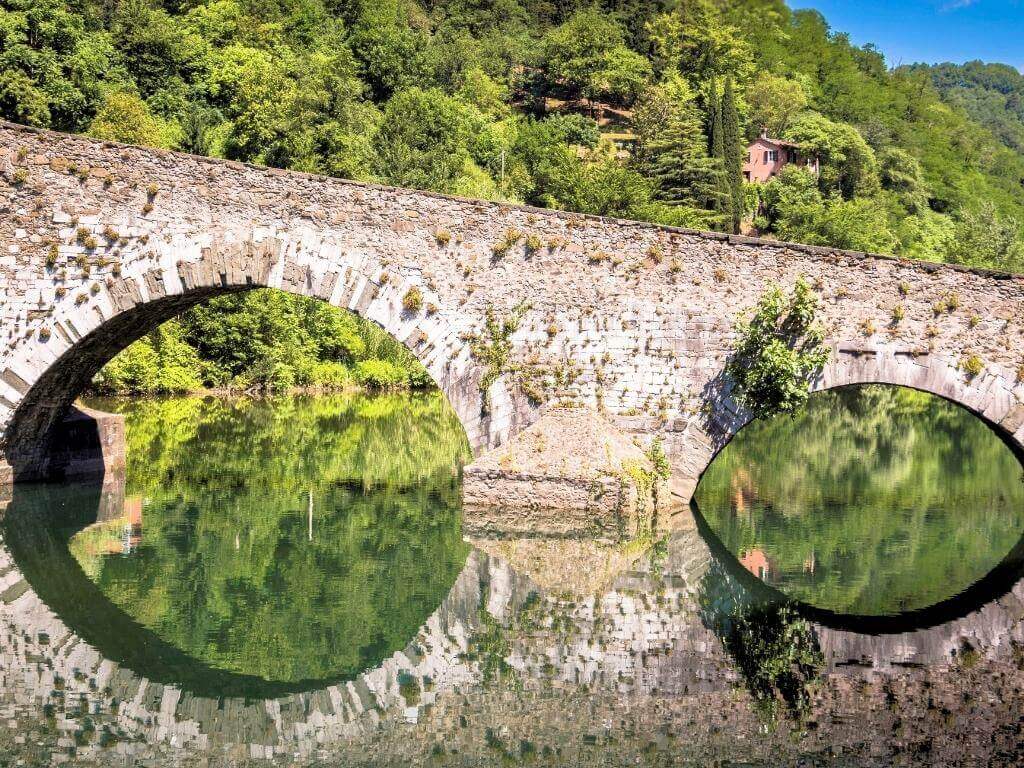
Lucca’s Brief History
Lucca is a city with many layers of history, beginning with the Roman times, moving to the Middle Ages, then continuing to the Napoleonic era, which led into the Risorgimento. Each age brought with it new architecture, churches, palaces, roads, and an emerging shape to the city that is evident today. The street plan reflects the Roman influence with its grid pattern. The Piazza dell-Anfiteatro retains the original shape of the Roman amphitheatre but not much else. In the Middles Ages, Lucca was an important fortress city, minted its own coins, prospered through the silk trade, and a key player in the Catholic church through its noble family, the Allucingoli. A notable presence and significant influence during this time was from a substantial Jewish population.
Between the 12th and 19th centuries, Lucca asserted its independence and remained a republic for almost 500 years. Even so, Lucca changed hands many times as various conquerors from Bavaria to Florence, Venice, and Genoa conquered and claimed the picturesque town. In the 18th and 19th centuries France and Austria battled over the territory, with France eventually winning out. Shortly after Lucca’s constitution was granted, however, Napoleon converted it into a monarchy and installed his sister as Princess of Lucca. Eventually, Lucca became part of the Italian state in 1861 and remains so today.
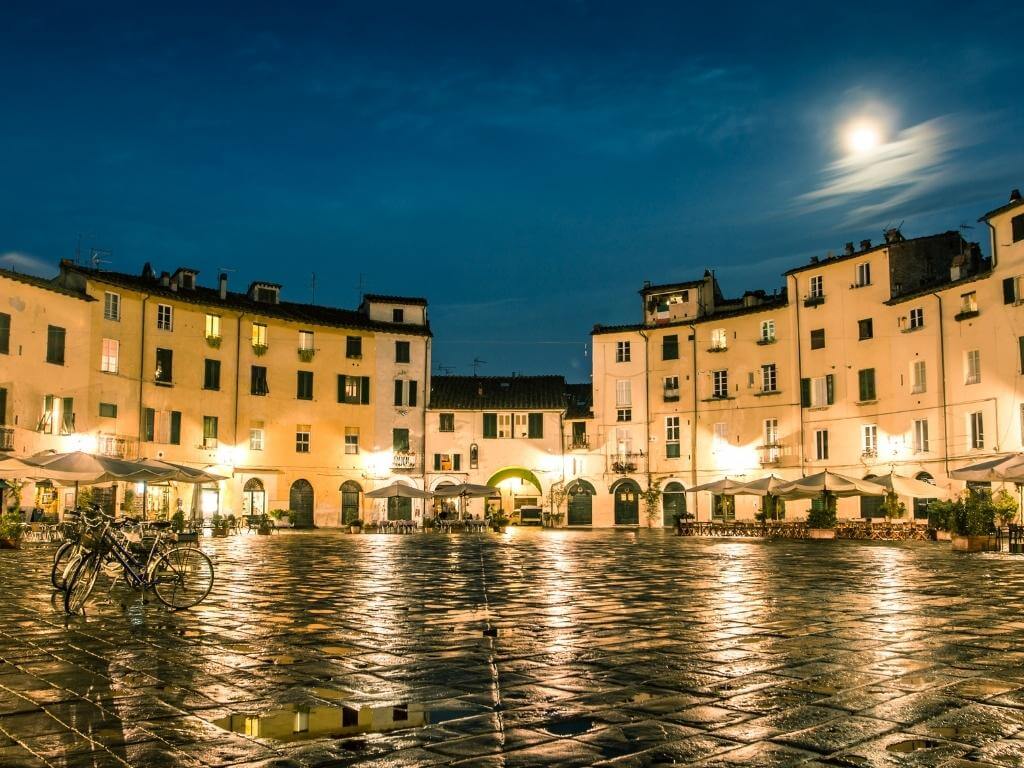
What Makes Lucca Unique?
There are a number of aspects that make Lucca a traveller’s haven. Besides the spectacular lush vegetation and rolling hills that surround it, Lucca is encircled by a 4km four-sided wall called the Passeggiata delle Mura Urbane. Initially the walls were built as a defensive structure when the Romans arrived in 180 BC. Over the centuries, the walls have undergone re-construction an additional three times, with the current walls dating back to the 16th century.
Residents and visitors can walk or cycle on the wall, which links neighbourhoods on all four sides. It is a unique and pleasant way to explore the piazzas, museums, palaces, and churches that are part of Lucca. Speaking of churches, the town is often nicknamed the “Town of 101 Churches” for its proliferation of churches, several of which date back to the 8th century. The two most famous are Duomo di San Martino (St. Martin’s Cathedral) and San Michele in Foro (St. Michael’s Church).
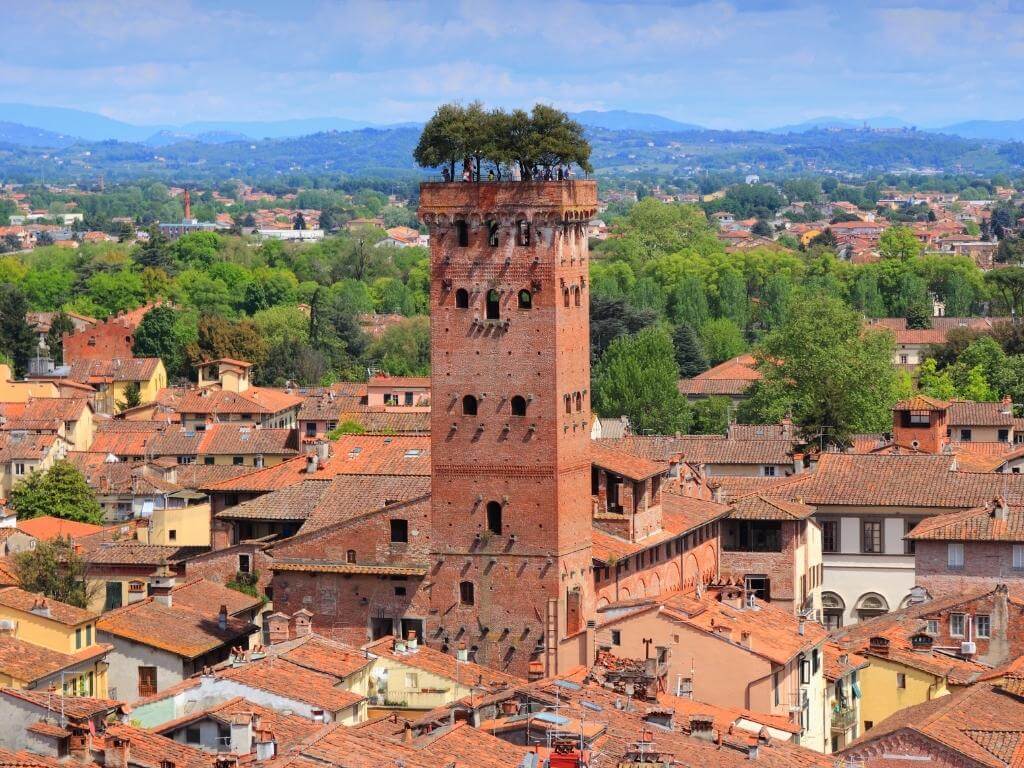
Lucca is also dubbed the Città d’arte (City of Art), not only for its historic center, but also architectural monuments like the Guinigi Tower that dates from the 1300s. This 125-foot Tower is easily recognized by the garden and trees that grow on its rooftop. Legend has it that the tallest tree in the garden was planted by Paolo Guinigi, who was captured and imprisoned in the castle by Francesco Sforza. It was said that before Paolo’s execution, all the leaves fell off the tree.
Lucca hosts a Summer Festival as well as the Lucca Comic and Games Festival. The latter is Europe’s largest festival for comics, movies, and games. It also has a Film Festival, Digital Photography Fest, and religious parades with full costumery.
The city is the birthplace of numerous composers, including Giacopmo Puccini (Madame Butterfly and La Bohème), Alfred Catalani, and Luigi Boccherini. The Italian poet Dante spent several years of his exile in Lucca writing and living in Lucca.
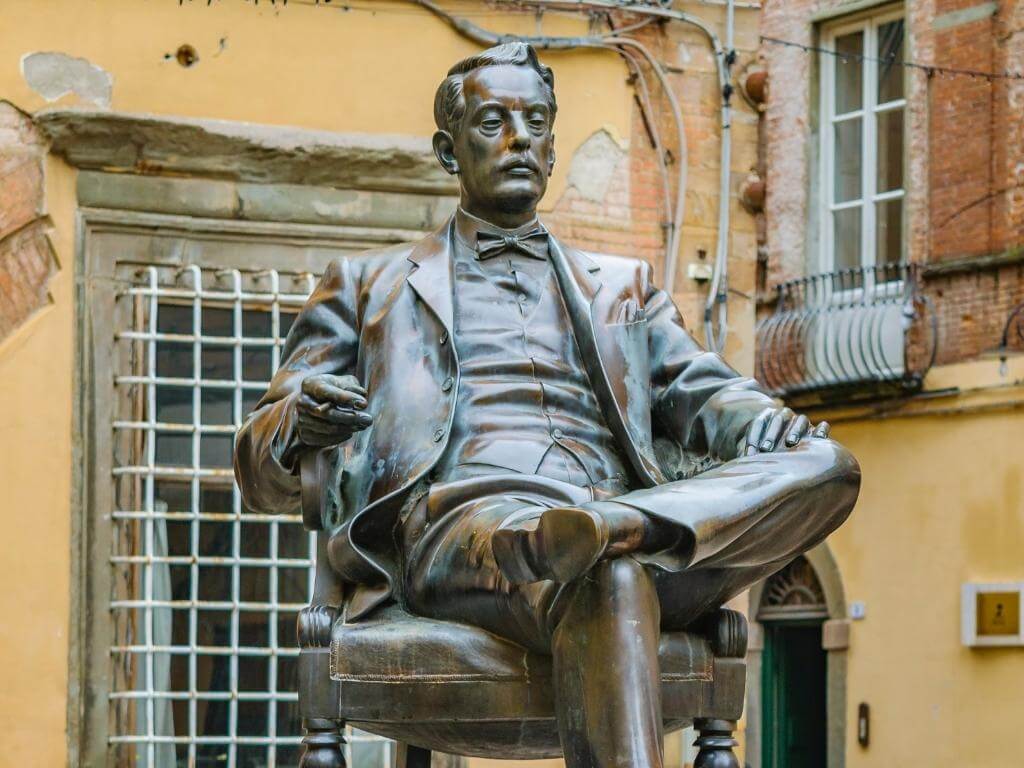
How to Spend a Day in Lucca
Let’s imagine you only have a day in Lucca. Thankfully, it is possible to see much in a short time because the city is very compact. However, if you have the luxury of spending a night or two, take the opportunity to slow your pace and do some people-watching. Here are some suggestions for making the most of a day in Lucca:
- Put on some comfortable walking shoes because that’s the best way to explore Lucca
- Have a map of the historic centre handy to orient you (in print or on your mobile)
- Start out in Piazza dell’Anfiteatro enjoying a morning beverage and watching the shops open
- Stroll along the pedestrian wall, taking in the sights around you and below you
- Visit as many piazzas as you feel inclined to, and at least Piazza Napeleone, Pizza San Michele
- Check out St. Martin’s Cathedral and St. Michale’s Church
- Visit the Torre Guinigi
- Treat yourself to a gelato at Gelateria Anfiteatro
- Make time for a pizza at da Gherardo Ristorante
- Taste Lucca’s signature food – Buccellato, which is a semi-sweet bread with raisins
- Make time for a visit to the Puccini Museum
- Visit at least one of the many palaces – Palazzo Pfanner is a great choice for inside and outdoor charms
- Enjoy a well-deserved aperitivo back at Piazza dell’Anfiteatro before saying ‘Arrivederci’ to Lucca!
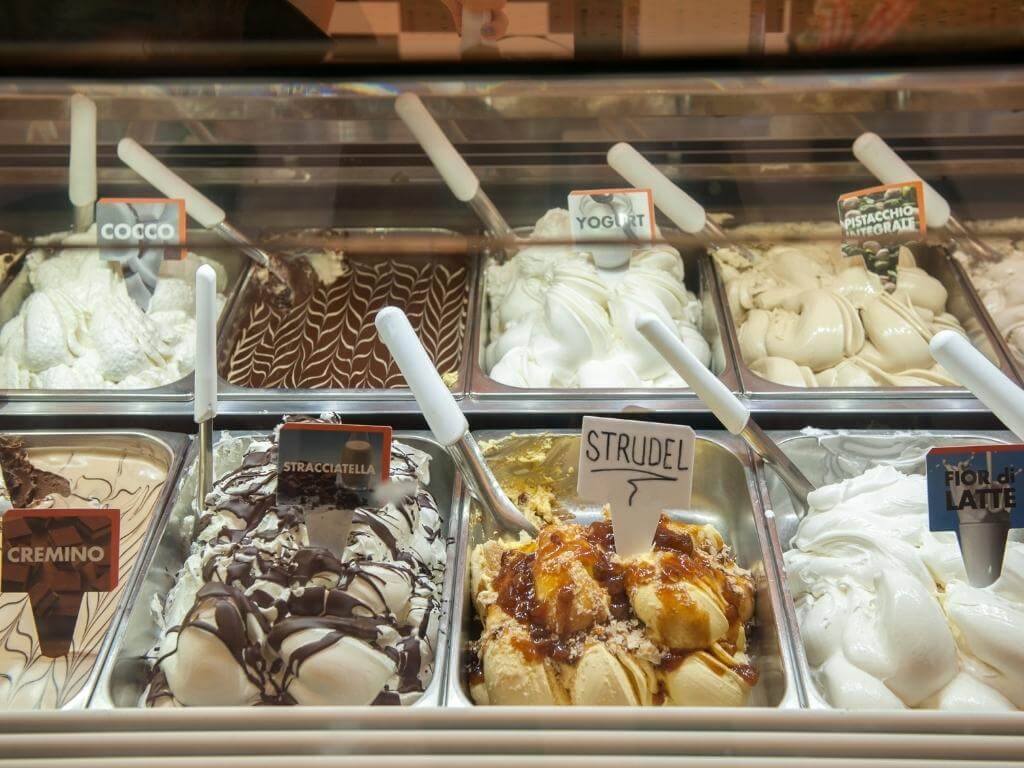
So, What is Lucca Known For?
There are so many beautiful towns to explore around Italy. Lucca is unique, historic, and loads of fun. It’s no wonder travellers continue to put Lucca at the top of their Tuscany list of must-see places. I can’t wait to be there this year and experience its many charms.
Join Us in Italy!
To learn more about our tours that take travellers off-the-beaten path in Italy, visit our Tour Page, sign up for our mailing list below, or send us an email at info@mp-tours.com.
